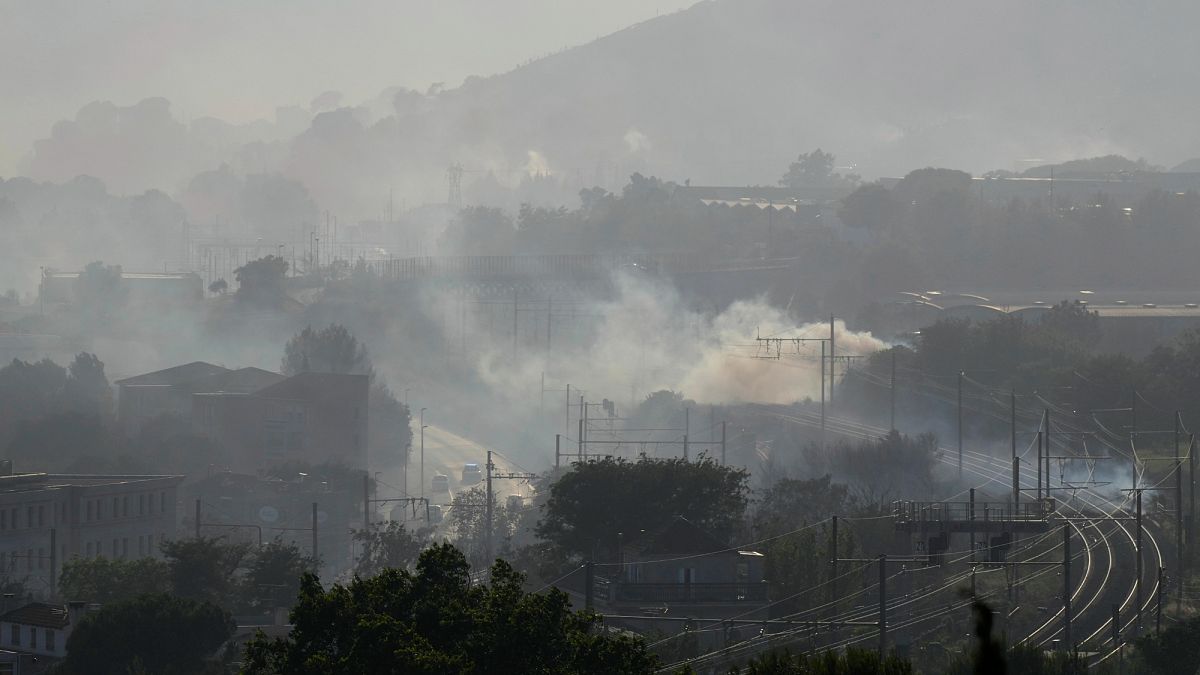

The recent spell of intense heat across Europe has impacted regions with a mix of challenges, yet also an inspiring display of cooperation and resilience. This period managed to highlight the effects of climate change while underscoring the importance of unity and proactive measures in the face of natural adversities.
In the south of France, the city of Marseille witnessed firsthand the challenges posed by the rising temperatures. The serene landscapes around Marseille were starkly contrasted by plumes of smoke from ongoing wildfires, which forced the temporary closure of the city’s airport. The efforts of emergency services helped minimize the disruptions, yet the flames were able to reach the outskirts, injuring over a hundred individuals. Despite the gravity of the situation, firefighting teams bravely pushed back the wildfire as they worked tirelessly to safeguard the communities and their environments.
These fires were not isolated to France, as regions across Europe’s south were similarly tested. In Syria, massive wildfires spanned the northwestern coast, prompting the nation to make a fervent appeal for assistance from the European Union. The cooperative spirit between nations was epitomized by reinforcements arriving from neighboring Turkey, Jordan, and Lebanon, demonstrating a collective effort in tackling this enormous challenge. The call for support underscored the pressing need for international cooperation in the wake of such crises, emphasizing a shared responsibility for the welfare of our environment.
Central Europe faced its own hurdles as violent storms swept through in the aftermath of the oppressive heat, leading to unfortunate losses and extensive damage. This situation painted a poignant picture of nature’s unpredictable power, reminding us of the delicate balance our contemporary societies must strive to maintain. Communities affected by these storms showed resilience, as rebuilding efforts commenced focusing not only on restoring infrastructure but also on better preparing for future climatic events.
These climatic upheavals have prompted scientists to delve deeper into the link between climate change and its stark impacts. A recent rapid study highlights a troubling trend—the death toll during the recent European heatwave has tripled due to climate change, reflecting the silent threats posed by global warming. Examined were twelve cities that suffered an additional 1,500 deaths attributable to the exacerbating effects of global temperature rise. Such findings call for continued research and robust strategies to mitigate the impacts of these heatwaves.
While the statistics paint a sobering picture, they also offer a rallying call towards sustainability and innovation for a more climate-resilient future. The awareness generated by these studies acts as a guiding light for policy-makers and communities to prioritize long-term sustainable frameworks. Additionally, these insights can foster civic engagement, encouraging individuals to partake in climate-conscious behaviors, ensuring that local efforts harmonize with wider global objectives.
In reflecting upon these events, it’s important to acknowledge both the challenges and the enduring spirit demonstrated by affected regions. Cooperation, resilience, and adaptability became the hallmarks of the response to these adversities. The trials endured over these recent weeks serve not just as reminders of the impact of climate change, but also as affirmations of humanity’s capability to unite and rise collectively. As Europe and the world navigate these climate challenges, embracing collaborative action and sustainable innovation holds the promise of a harmonious and hopeful tomorrow.
Source: {link}
